Obese patients less likely to survive cancer; chemo doses often wrong, research shows
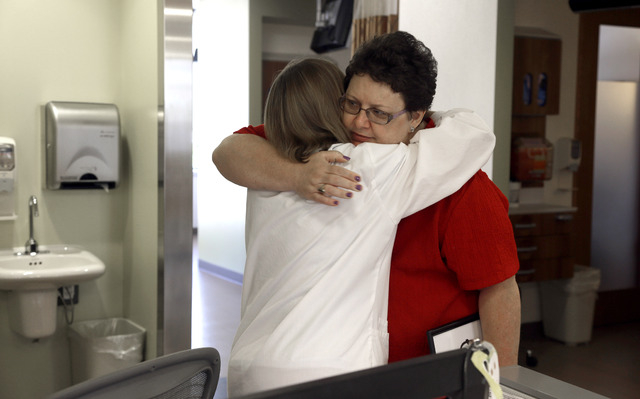
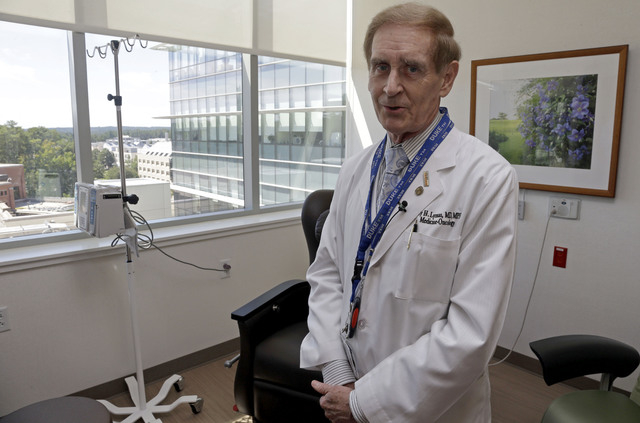
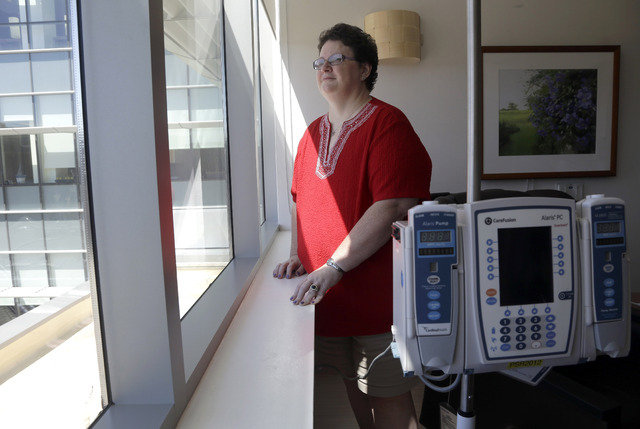
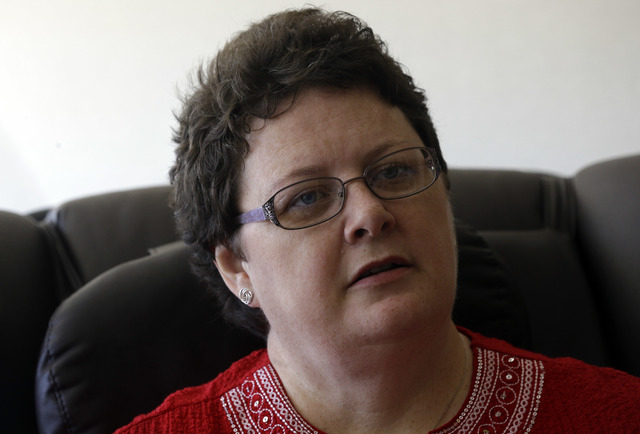
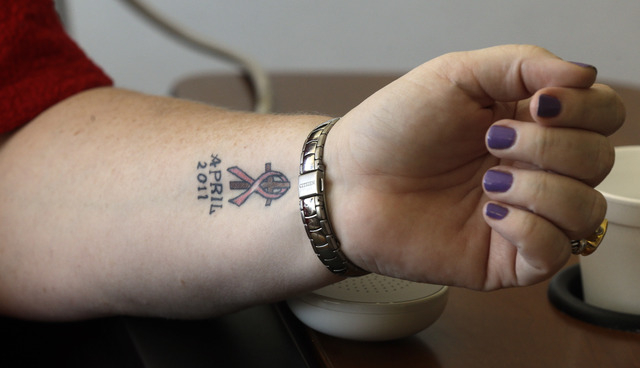
Obese people are less likely to survive cancer, and one reason may be a surprising inequality: The overweight are undertreated.
Doctors often short them on chemotherapy by not basing the dose on size, as they should. They use ideal weight or cap the dose out of fear about how much treatment an obese patient can bear. Yet research shows that bigger people handle chemo better than smaller people do.
Even a little less chemo can mean worse odds of survival, and studies suggest that as many as 40 percent of obese cancer patients have been getting less than 85 percent of the right dose for their size.
Now, the largest organization of doctors who treat cancer, the American Society of Clinical Oncology, aims to change that. The group has adopted guidelines urging full, weight-based doses for the obese.
Don’t call it supersizing; it’s right-sizing cancer care, said Dr. Gary Lyman, a Duke University oncologist who led the panel that wrote the advice.
“There’s little doubt that some degree of undertreatment is contributing to the higher mortality and recurrence rates in obese patients,” he said.
The Food and Drug Administration’s cancer drug chief, Dr. Richard Pazdur, agrees.
“By minimizing the dose, or capping the dose, we have been undertreating patients,” he said.
The dosing issue applies to all types of cancer treated with chemo — breast, colon, lung, ovarian and even blood diseases such as leukemia.
It affects a lot of people. Big isn’t healthy but it’s the new “normal” — 60 percent of Americans are overweight and more than one-third of them are obese.
Giving too little chemo “could make it as if they didn’t even get treated at all … so they go through the whole ordeal with no benefit, in the extreme case ,” said Dr. Jennifer Griggs, a University of Michigan breast cancer specialist who also worked on the guidelines.
So why do doctors limit dose?
Sometimes it’s for good reason — the patient has diabetes, heart problems or other illnesses that interfere with how much chemo they can stand. Usually, though, it’s because doctors are afraid to follow a standard weight-based formula because the dose seems so huge and they’re afraid of harming the heart and blood system, Lyman said.
“You’re three times the size of the average person, but it doesn’t mean your heart is,” Griggs explained.
Yet studies show that heavier patients are less likely to develop dangerous, low blood counts from cancer treatment, and that they clear chemo drugs more quickly from the body than thinner people do.
A paper Lyman published in the journal Nature in August said that a 20 percent reduction in chemo doses lowered remission and cure rates by half in animal experiments and helped the tumors develop resistance to the drugs. Other research in people found lower survival among those getting less chemo as well.
Even if a patient develops a problem from a chemo treatment and doctors have to dial it back, it’s important to try a full dose the next time around so the patient gets all the treatment intended, Lyman said.
That happened to Tracy Smith, a 46-year-old Durham, N.C., woman treated at Duke in 2011 for breast cancer that had spread to more than a dozen lymph nodes. Doctors gave her full chemo doses based on her weight, which at 285 pounds classified her as obese.
Three times, high fevers put her in the hospital, and one treatment was cut short because doctors thought it was causing wheezing and possible lung damage. But she resumed and finished the intended treatment and has been cancer-free since then.
After hearing you have cancer, “you’re just kind of in a fog” and don’t think to ask about doses of the drugs you need, she said. “I trusted my doctor. Doctors should be well aware of what you can tolerate. You should do whatever you can to fight this beast.”
Smith’s tumor was fueled by estrogen — a hormone made in abundance by fat tissue. Robin McRath, a floral designer who helps run a women’s shelter in Ludington, Mich., had the same type.
“It’s like a playground, an amusement park, for cancer cells when you’re fat,” she said. She was only was 41 when her cancer was diagnosed five years ago, and her oncologist, Dr. Carol Peterson, treated her with full doses based on her weight — about 240 pounds, which put her in the obese category.
“We didn’t discuss dosage. That didn’t matter to me — I just wanted to get it out of my system,” she said of the cancer, and praised the treatments to prevent one of chemo’s most feared side effects. “There are fantastic anti-nausea medicines. I was never sick one day.”
McRath is active in the Obesity Action Coalition, an education and advocacy group. A spokesman said the group was unaware of the dosing issue for obese patients.
Not all doctors are aware either. Luckily for McRath, hers was. Peterson said she uses full doses unless a patient has other health issues.
“If that’s their only problem — if they’re just overweight or obese — they can do quite well” with full weight-based doses, she said.
Duke’s Lyman agreed, and offered this advice to patients: “Ask your doctor how they plan to treat you and whether you’re going to get the full dosing. The doctor may have a good reason not to, but you should have that discussion.”
———
AP National Writer Allen G. Breed in Raleigh, N.C., contributed to this report.
———
Online:
Guidelines: http://www.asco.org/guidelines/wbd
———
Follow Marilynn Marchione on Twitter at http://twitter.com/MMarchioneAP












